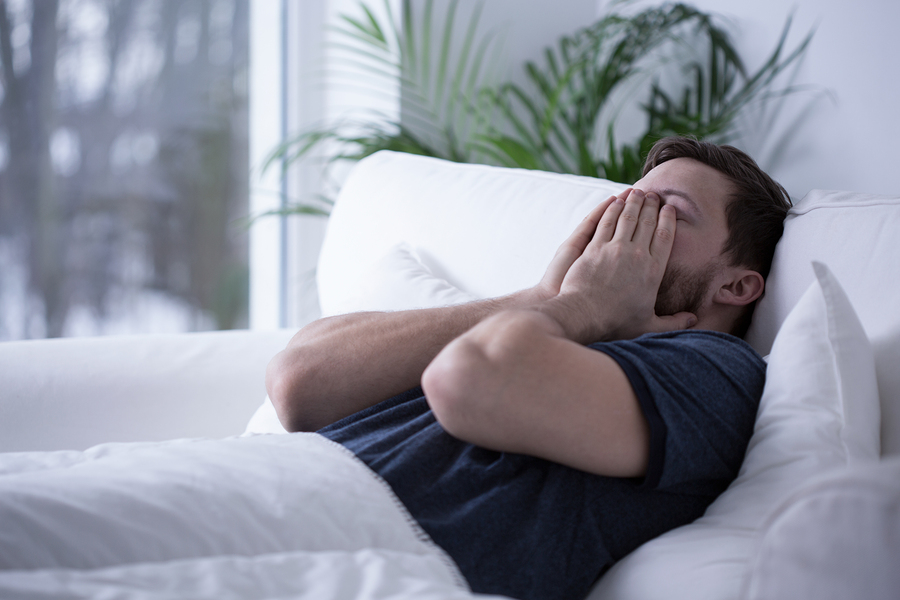- Make It Yourself Lavender Heart-Shaped Bath Bombs!
- 20 Things You Never Knew About “Down There”
- 12 Best Foods For Those Suffering From Arthritis Pain
- 12 Personal Hygiene Mistakes Almost Everyone Makes (Mom Never Told You About #4!)
- 15 Medicinal Plants And Herbs From The Cherokee People
- 12 Mind-Blowing Benefits Of Drinking Coconut Water During Pregnancy
- 12 Outstanding Winter Foods That Won’t Fatten You Up Like A Christmas Turkey
Smartphones Destroy Your Ability To Feel Pleasure

Photo credit: bigstock.com
Ok, we admit this is a bit of a clickbait headline, but there’s more truth to it than you might think. New research indicates that the excessive use of smartphones may cause some people to experience less pleasure from time spent in leisure. Let’s explore how this data was uncovered and how it manifests itself in modern life.
Research has shown that many things in life can be addictive, not just narcotics and alcohol. The object of the addiction becomes the focal point of the addict’s life. Over time, the addiction leaves him or her desensitized to other sources of enjoyment. New studies have found that the constant use of a smartphone can have a comparable effect on the brain of the user.
Smartphones and the ubiquity of the internet in the modern world have fundamentally changed the way we live. They have made it easier and more efficient than ever to communicate, do business and stay on top of what is happening in the world. But the constant connectivity brings with it a new set of problems.
Decreased Enjoyment of Leisure Time
A study was performed by Kent State University on 454 students to determine if the number of hours spent on a smartphone affected the students’ ability to relax and enjoy downtime from studies or work. The researchers found that many students who were “high use” individuals (defined as those who used their smartphone more than 10 hours a day) were more likely to experience a feeling they termed “leisure distress.” This feeling was characterized by feeling stressed, anxious of strung out during their leisure time, when they were supposed to relax and not use their phones.
The findings indicate that these students felt obligated to check their phones all the time. When they didn’t have their phones, they were unable to fill their time with activities they found as satisfying as checking their phones.
While these findings certainly offer some cause for concern, the researchers themselves cautioned that they have only solidly established correlation, not necessarily causation. They encouraged readers not to draw definite conclusions from the study, which relied heavily on self-assessment.
Still, the findings of this study are certainly worthy of further research. In the words of Dr. Lian Ji, one of the researchers: “Being constantly connected to your phone is not likely to enhance your experience of leisure. On the other hand, disconnecting for short periods of time in order to seek more challenging leisure opportunities is likely to be beneficial.”
Continue to Page 2

Photo credit: bigstock.com
Poor Sleep
Use of electronic screens before bed can have an incredibly deleterious effect upon your quality of sleep, and smartphones are no exception.
A study conducted by researchers at Michigan State University found that employees who used their smartphones to do work at home after work hours got poorer sleep and were less productive the next day than their colleagues who did not.
It’s no surprise, when you consider the effect the smartphone’s screen has on the brain. Electronic screens emit light from all colors of the visible light spectrum, including blue light. The problem with blue light is that it is found naturally in sunlight, so when you view a smartphone screen late at night, it confuses the brain into thinking that it is daytime. This makes it difficult for the brain to allow you to fall asleep. There’s also the fact that whatever you’re doing on your phone at night will keep you mentally engaged at a time when you should be relaxing and drifting off to sleep.
Decreased Physical Fitness
It may seem counterintuitive that mobile phones can decrease one’s level of physical fitness. By their very definition, mobile phones can be used while moving around, so surely using them wouldn’t be as unhealthy as lounging in front of the TV or hunching over a desktop computer all day. But new research appears to indicate this may indeed be the case.
While yes, smartphones are by their very nature mobile, and yes, they can be used during physical activity like cardiovascular exercise or weight training, that doesn’t necessarily mean that is how most people are using them. Most of the time, people do indeed use them while just sitting down. This contributes to a sedentary lifestyle, and all the health problems that come with it. A study confirmed that students who spent the most time on their phones showed the poorest cardiovascular performance on a treadmill. This does indeed suggest a strong correlation between increased sedentary activity (in this case, mobile phone use) and decreased overall health.
Continue to Page 3

Photo credit: bigstock.com
Takeaways
Don’t worry, you don’t have to toss out your fancy new phone. In spite of all the warnings in this article, it is relatively easy to work around these dangers of smartphone overuse.
1. Have a specific purpose for using your phone. Use it for sending emails, making calls or returning text messages. Set a specific schedule for doing this so you’re not responding to communications in piecemeal fashion, which lowers your overall productivity and wastes time. Try setting aside a few minutes 4 or 5 times a day for this.
2. Don’t use your smartphone 1 hour before bed. If you must use it at a late hour for some reason, install the f.lux app on your phone. This app blocks out the blue light emitted by your screen so it won’t confuse your brain into thinking it is daytime.
READ ALSO: Is Your Smartphone Really Making You Near-Sighted?
3. Just put the darn phone down. Yes, this is easier said than done for some, but believe it or not, there was a time when human beings did not have smartphones, or (gasp) any type of cell phone at all. Somehow, we all survived. Once you free yourself of smartphone addiction, you’ll probably find it quite liberating. Go outside, get some sun, socialize, go for walk. Life doesn’t happen on social media. It happens in the real world. There’s a whole world out there, but you’ll never experience everything it has to offer if you’re always looking down at a 5” screen.
References:

































